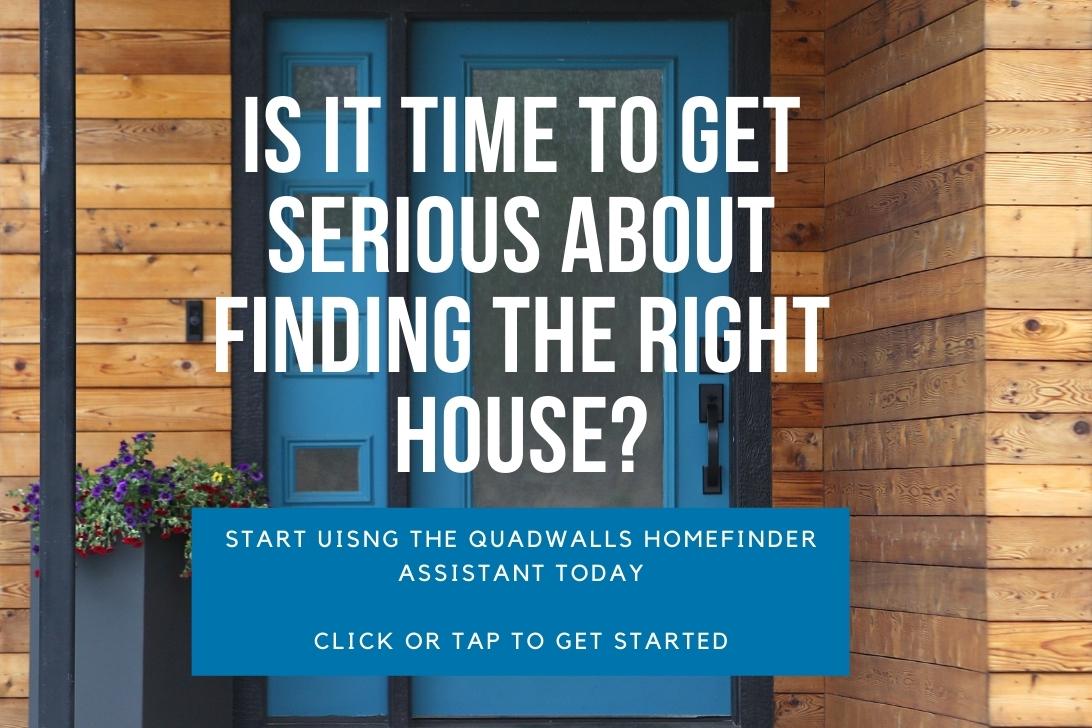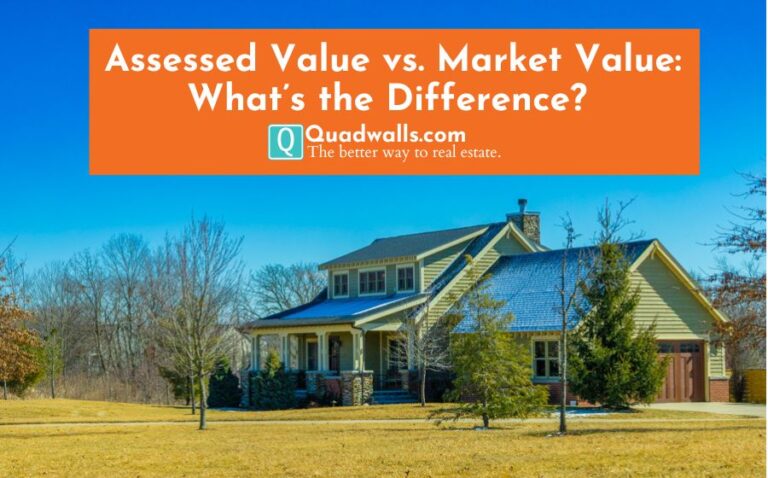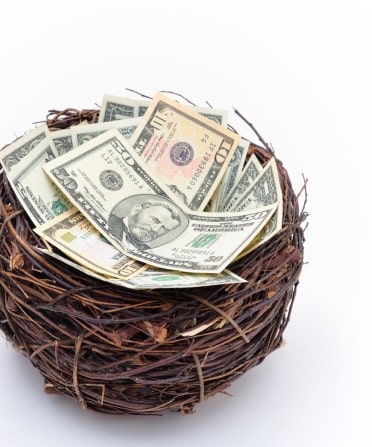How to Use a Cash-Out Refinance to Buy Investment Property
One of the challenges of starting out in real estate investment is finding the money to acquire the property. A cash-out refinance for investment property is one of the ways to get those funds.
This post will take you through all you need to know when using a cash-out refinance to buy an investment property. This includes the benefits and consequences and what you need to qualify for a cash-out refinance. So, let’s get to it and start learning how to use a cash-out refinance to buy investment property.
What Is a Cash-Out Refinance?
A cash-out refinance is a mortgage which results in you walking away from the table with cash and a new mortgage on a property you had already owned. In order for a cash-out refinance makes sense, a couple conditions must exist.
To complete a cash-out refinance you need to have a large equity position in a property you currently own. That property can have indebtedness on it, though.
The proceeds from a cash-out refinance can be used for pretty much anything. Some people use the funds to make improvements on the existing property, to pay down higher interest debt, or some people use a cash-out refi to buy investment property.
Buying an Investment Property with a Cash-Out Refinance

Some real estate investors will use a cash-out refi to buy investment property. Several benefits may be possible when using a cash-out refi to buy investment property compared to other loan types.
Cash out refinances are typically cheaper. A cash-out refinance typically has lower interest rates compared to investment property mortgages. Additionally, the closing costs are typically lower, too. So, the cost to create the loan is lower, and the long term repayment cost is less, too.
A cash-out refinance to buy rental property could be a single source of funds. This is possible if your equity position in the home being mortgaged is large enough and the purchase price of the investment property is low enough. A single source loan to make the acquisition is more streamlined.
Buying a Second Home with a Cash-out Refinance
A cash-out refinance is a convenient way for homeowners to purchase a second home. If you are have a large equity position on your primary residence, consider taking a new mortgage with a large cash-out to buy that vacation home you have dreamed of owning.
Do keep in mind what a second home means. Do not try to use the cash-out refinance to buy another home intending that to be your primary residence and then selling your current primary residence on which you did the refinance. Your cash-out refi will have terms stating this.
How Much Cash Will a Cash-Out Refinance Get You?
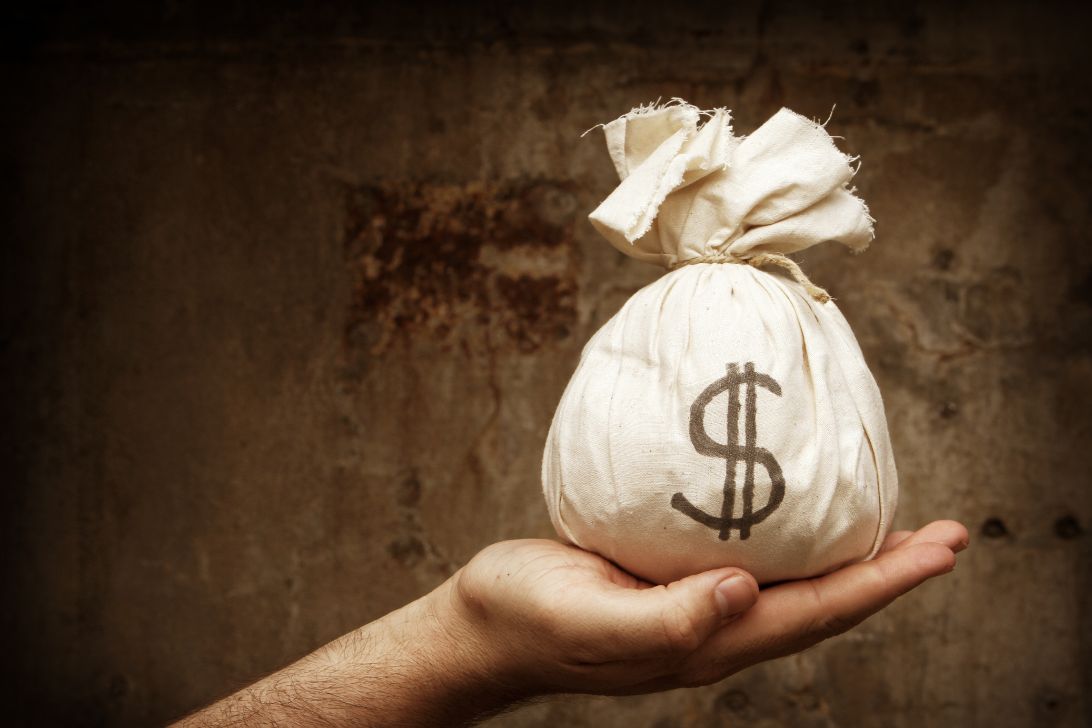
Before starting the process for a cash-out refi for investment property you should know whether or not you will receive enough cash to meet your goals. There are limits based on your equity and the loan amounts.
The first limiting factor is the cap. Most lenders maximum loan to value for a cash-out refinance is 75% or 80% of the loan to value. For example, if a home has a market value of $400,000 the lender’s maximum loan amount will be $300,000 (75%) to $320,000 (80%). Ask your loan originator about the maximum offered at the lender’s firm.
The second limiting factor is your current equity position. See, any current indebtedness on the property will need to be paid off with the new mortgage. You need to know your equity position.
For example, if you are doing a cash-out refinance on a home worth $400,000 with no existing indebtedness of mortgage on the property, you can get the full 75% to 80% loan-to-value in a cash out. On the other hand, if that same $400,000 has a current mortgage of $200,000 you will only see a 25% to 30% cash payout. Here is why:
- Value: $400,000
- Total Current Mortgage Indebtedness: $200,000 (50% loan-to-value)
- Maximum Loan-to-Value in Cash-Out Refinance: 75% to 80%
- Cash-Out at Closing: 25% to 30%
When Can I Get a Cash-Out Refinance Loan?
There is not point in getting a cash-out refinance until you have at least a 20% to 25% equity position in the property. This is because the maximum cash-out loan-to-value with lenders is 75% to 80%. Moreover, you should actually have a meaningfully larger equity position in the property. The purpose of a cash-out refinance is to access a large amount of the cash value in the property.
If you do not have a large equity position in the property consider a HELOC. A HELOC, or home equity line of credit, is a credit line against the equity value of a home. These are easier to get and make more sense when needing a small amount of money.
Buying a Rental Property with a Cash-Out Refinance
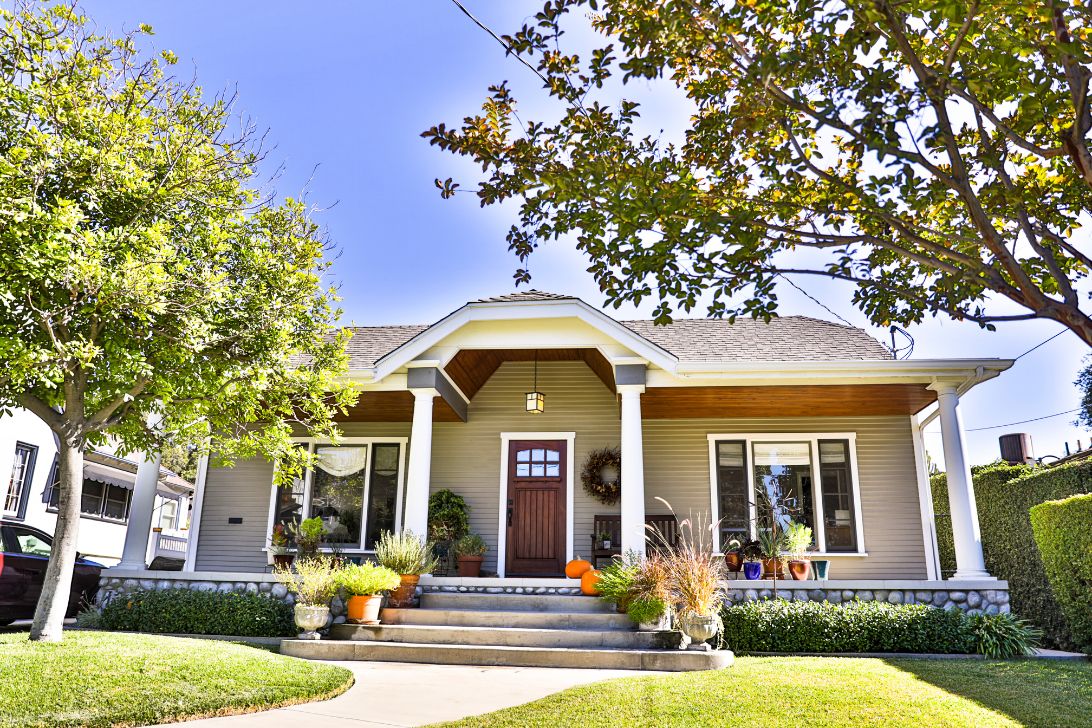
Using cash out refinance to buy investment property can be a viable option. A cash-out refinance offers real estate investors a lower cost, more streamlined opportunity to purchase a rental property. However, a cash-out refinance will not work for everyone.
A cash-out refinance will only provide a limited amount of cash. Lenders only offer up to a 75% or 80% loan-to-value on a property. So, if your equity position isn’t big enough and the purchase price of a rental property is not low enough, the cash-out refi alone may not be enough to complete the purchase.
Steps to Do Cash Out Refinance to Purchase Investment Property
There is a process when using a cash-out refinance to buy another property. This is because a cash-out refinance includes the creation and placement of a new mortgage on the property.
Step 1: Get Pre-Approved for the Cash-Out Refinance
The first step would be to get pre-approved for the refinance. A loan originator can complete a preliminary analysis to determine if you would get approved for a new mortgage and whether or not it would produce enough cash to meet your goals. Keep in mind just because you have a mortgage today does not mean you will automatically get approved for a new mortgage.
Step 2: Provide Paperwork and Formal Loan Application
If the preliminary analysis indicates the cash-out refi is an available and useful option it is time to make a formal application. The mortgage loan originator will assist you with the application. Also, the loan originator will need some documents. These will include recent pay stubs, bank account statements, and tax returns.
Step 3: Lock Down the Interest Rate
Your loan originator will offer you the opportunity to lock your rate or to float. Eventually, you will need to lock in your rate. Follow the advice of your loan originator about when it will be best to lock the rate.
Step 4: Continue With Underwriting
Your cash-out refi will need to be underwritten. As the loan is underwritten you need to stay in contact with the loan originator. There will likely be questions and a need for more documents based on your situation. It is very common for a piece of information to require supplemental pieces of information. Watch for communications from your lender to prevent any delays in having your mortgage approved.
Step 5: Settle On the Refinance Loan
Once your cash-out refi is approved and labeled clear to close it will be time to close the loan. Settlement of the loan typically occurs with the assistance of a title company. The end result of the cash-out refinance will include:
- Paying off a pre-existing mortgage if there was one
- Placement of a new mortgage on the property, and
- A cash payment to you with the overage cash-out proceeds
Pros and Cons of Refinancing to Buy a Rental Property

As with so much in life there are benefits and consequences of buying a rental property with a cash-out refinance.
Pros to Refinancing to Buy a Rental Property
There are benefits to using a cash-out refinance to buy investment property.
- Lower Costs – A cash-out refinance on your primary residence will likely have a lower interest rate than an investment property mortgage. This will lower the long-term repayment costs. Additionally, loan origination charges on a refinance may be less than the loan origination charge on a mortgage on a property you are trying to buy.
- Single Source of Funds – A cash-out refinance can be a single source of funds to purchase an investment property. This just makes purchasing the investment property easier and more streamlined.
- Fast – Cash-out refinance move along quickly. This is because there is no purchase agreement stuffed with timelines. Instead, the speed of closing the loan is based on how fast you respond to your lender’s needs for documents and the lender’s speed processing those.
Consequences to Refinancing to Buy a Rental Property
There are some negatives when using a cash-out refinance to buy an investment property.
- Shifting Indebtedness – Debt is debt. Going into debt on your primary residence to buy an investment property for a bit of cash flow may not be the best idea. Make sure your priorities are in balance.
- Missing Out on Tax Advantages – I am no tax expert, but a cash-out refinance on your primary residence will keep you from getting to claim the repayment of the mortgage on your taxes. On the other hand, if the loan was on investment property you may be able to off-set profits with the mortgage repayments. Talk with a tax professional to find out which is the best option for you.
- Cash Exhaustion – Cash out refinances are a great way to pay off high interest debt, pay for college tuition for a child, or to improve your primary residence. Once you have used a cash-out refinance to buy an investment property you can’t necessarily do it again without re-shuffling a lot of things around.
What Do You Need to Complete a Cash-Out Refinance for Investment Property

Simply owning a property does not qualify for a cash-out refinance. You must meet the qualification requirements for a cash-out refinance.
Your cash-out refinance will only be approved if you can meet the guidelines for the loan product. Cash-out refinances usually follow the conventional loan guidelines. However, you can complete a cash-out refinance with a FHA or VA loan.
Qualification requirements will include meeting the minimum credit score, debt-to-income ratio, income longevity, cash reserves, and will be limited by the loan-to-value on the property.
Cash-Out Refinance Credit Score Requirements
Getting a cash-out refinance will require meeting the minimum credit score requirements. For a conventional loan this is 650, FHA is 620, and a VA does not have a minimum, but a score of 600 or higher is typically needed.
We each have three credit scores. A lender will use the middle score. If there is a co-borrower such as a spouse the lender will use the lower middle score.
Maximum Debt-to-Income Ratio for a Cash-Out Refinance
The maximum debt-to-income ratio for a cash-out refinance varies from lender to lender and based on the loan product. The back-end ratio typically can not exceed 50%. Most lenders will prefer to see a back-end debt-to-income ratio no higher than the low to mid 40s.
Your back-end debt-to-income ratio is a calculation. To find your back-end debt-to-income ratio add up your recurring monthly liabilities. This includes car payments, minimum credit card payments, student loans, alimony, child support, judgments, and any other secured or unsecured credit. Then, add the cost of repaying the mortgage including property taxes and insurance. Then, divide that by your monthly gross income.
If buying an investment property, make sure to include the homeowner’s insurance nad property taxes of the new home in the calculation, too.
Income Longevity
In order to qualify for a cash-out refinance you must have sustained income likely to continue into the future. Income can be wages, investment income, retirement income, or a government benefit. Regarding wages you may need as much as a two-year work history.
Minimum Cash Reserves
Lenders typically require some cash reserves in your savings to approve the loan. The typical amount is two to four months of projected house payments. Having cash reserves gives a lender an indication you will be able to begin making the payments.
When a Cash-Out Refi Makes Sense
A cash-out refinance makes the most sense when you have a good use for the money in exchange for the indebtedness and interest on that debt.
A cash-out refinance will provide you with funds. If you are in need of cash for a reason it can be a good idea. Cash-out refinances are a great way to pay for improvements to the property, pay off high interest debt, assist a child or grandchild with college expenses, or to buy an investment property.
However, a cash-out refinance is not always the best way to purchase a property. First, it might not be best to go into debt on your primary residence to buy another property. Secondly, you may lose some of the tax advantages available when borrowing directly against the investment property you are buying.
Alternatives to Cash-Out Refinancing

There are alternatives to using a cash-out refinance to buy an investment property which might be better for you.
Home Equity Loan
A home equity line of credit, or HELOC, is a way to unlock the equity in a property without replacing the current mortgage on the property. It may be that you have a mortgage on a property but also a large equity position. You wouldn’t want to replace a low interest mortgage with a higher interest mortgage. A HELOC allows you to tap and use the equity in the home without replacing the original mortgage. HELOCs have lower origination costs and are typically easier to get.
Personal Loan
A personal loan is a great way to borrow money to buy an investment property. A personal loan is typically unsecured. This means you are not attaching indebtedness to any of your assets. Personal loans have very low origination costs. Approval for a personal loan is usually very quick taking just several days. Personal loans often have a higher interest rate compared to a mortgage or a HELOC.
Self-Directed IRA
A self-directed IRA can be used to purchase real estate investments. However, there are a lot of rules about how to do this. So much so, I would encourage any reader to learn more about this by speaking with your financial planner and a tax expert.
Tips for Cash-Out Refinancing
I have shared a lot of information about cash-out refinances and using a cash-out refinance to purchase investment property. Here are some takeaway tips to keep in mind as you consider using a cash-out refinance to buy an investment property:
- Carefully decide whether putting more debt on your primary residence or some other property is worth it to acquire the investment property
- Be wary of replacing an existing mortgage with a low interest rate with a new mortgage with a higher interest rate
- Speak with a tax professional about the pros and cons of buying an investment property with a cash-out refinance
- Consider alternatives for getting access to funds such as a HELOC, personal loan, or a self-directed IRA
- Lastly, explore just getting an investment property mortgage
Let Quadwalls Guide You
If you are looking for a real estate investment or rental property in Northwest Indiana the Quadwalls Real Estate Team can help you. The Quadwalls Real Estate Team has represented many Northwest Indiana real estate investors.
We have helped real estate investors find and buy investment properties in Northwest Indiana. If this is what you want to take the first step and complete the Quadwalls HomeFinder Assistant. Here, you can tell us about what you are looking for and your goals.
Or, if you are thinking about selling homes in your rental portfolio we can help with that, too. The Quadwalls Real Estate Team offers Northwest Indiana home sellers a full-feature home selling service and low real estate commission fees.
If there is something else we can help you with or you just want to talk about some real estate you can contact us.
 Updated: March 29, 2023
Updated: March 29, 2023  872
872  15 min
15 min

